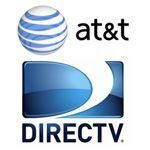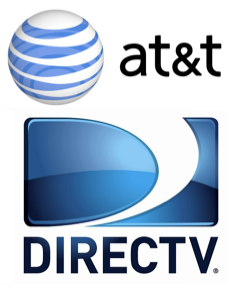AT&T/DirecTV Merger Debate: Should We Be Worried?


AT&T + DirecTV: Should We Be Worried?
AT&T and DirecTV have announced plans to merge, creating a single player within the communications space for over 70 million customers nationwide. The move has been seen in some circles as controversial, particularly in light of limited competition in these markets. But does this pose a threat to consumer choice and competition, and should we be actively worried about a merger of this kind?
The FCC has a spoken aim of increasing competition in the broadband market. In an industry dominated by only a handful of major players, there is concern that consumers are losing out, and FCC Chair Tom Wheeler has discussed the need for more varied competition in the sector.
Funny, then, that the move to unite AT&T and DirecTV should be allowed to pass without the hubbub that might ordinarily be expected from such a sizeable merger – one of the countries biggest communications companies, partnering with the second biggest pay-TV provider, in a marketplace already threatened by a lack of viable alternatives.
With too few players in the market as it is, why aren’t there more people crying ‘foul’, and arguing against this potential threat to consumer diversity and choice?
While it is true that the merger will create a new satellite communications giant, there are good reasons from both camps for the move. DirecTV has huge national coverage, but still partner up with individual providers (like AT&T) for delivering phone and broadband services, and bolting on to AT&T more closely works for ensuring wider roll-out. For AT&T, the chance to gain such a stronghold in the satellite TV market makes them a worthy rival for their own nearest competitors, including in particular Comcast.
Comcast, the industry leader, is already in the process of merging with Time Warner Cable, which would create the undisputed biggest player in the communications industry – effectively dwarfing both AT&T and DirecTV in their respective markets. Rather than contributing to the lack of competition, the AT&T/DirecTV merger might just be essential in maintaining a competitive balance. Or to put it another way, AT&T DirecTV might be the only company capable of preventing a larger Comcast from fully controlling the market.
It’s still early days, and of course there is still the outside chance that the proposed Comcast merger fails, in which case questions about the legitimacy of an AT&T merger may start to feel more pressing. But for consumers in the short-term, bringing AT&T and DirecTV together is a helpful synergy for diversity of choice, and a strong competitor for the much bigger threat to competition of the proposed Comcast merger.
While the FCC may be pursuing the admirable aim of increasing competition and choice for consumers within these markets, the AT&T/DirecTV merger seems on the face of it to be helpful to the cause, as a challenger for the new, much larger Comcast. However, the fact remains that more competition could still survive within these markets, and may in time prove necessary to bring the benefits of greater consumer choice to millions across America.
[image error]



